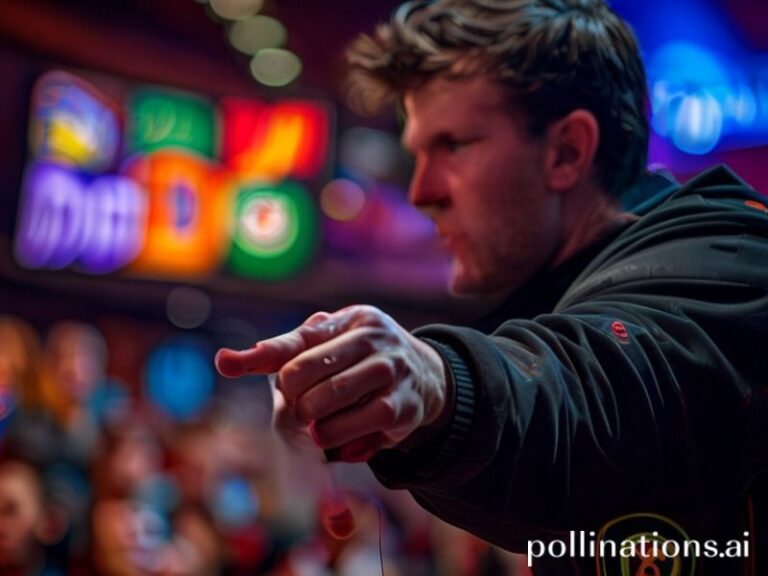Tony Earls: The Houston Shooting That Became the World’s Dark Mirror
Tony Earls: The Everyman Who Became a Global Morality Play
By the time Tony Earls’ name ping-ponged across the world’s news tickers—Tokyo at dawn, Lagos at lunch, São Paulo at midnight—it had already been chewed up by every algorithm that feeds on human misery. To most of the planet he is simply “the guy who fired at a robber and hit the wrong person,” a tragic synecdoche for America’s ongoing open-mic night on gun violence. Yet from Berlin to Bogotá, his case is being parsed like a Rorschach test: you see what your culture is already terrified of.
In Houston, Earls was handed a murder indictment for the February 2022 shooting that left a robbery suspect wounded and an innocent bystander, Arlene Alvarez, dead. In Rome, La Repubblica ran the headline “Il vigilante di Houston,” implicitly comparing Earls to Charles Bronson with worse aim and a GoFundMe. In Seoul, the Chosun Ilbo used the incident to explain why South Korea’s strict gun laws remain politically untouchable; the comment section filled with grateful citizens pointing at Earls the way medieval Europeans once pointed at lepers. Meanwhile, the American expat corners of Reddit argued over whether he is a “good guy with a gun” who zigged when he should have zagged, or merely proof that stand-your-ground laws are the legal equivalent of handing toddlers chainsaws.
Internationally, the Earls spectacle lands differently depending on how recently your own country survived its last bout of self-inflicted carnage. Mexicans watched with the exhausted sympathy of neighbors who have seen their own homicide statistics turned into Netflix narco-dramas. Canadians observed with the polite horror of people who installed better locks rather than bigger magazines. Australians recalled the 1996 Port Arthur massacre and the subsequent buy-back program—an episode now cited by Australian Twitter as Exhibit A in Why We No Longer Shoot Each Other at Traffic Lights.
The case also highlights a perverse form of globalization: American trauma, streamed worldwide in 4K. French sociologists call it “l’effet Netflix”—the way U.S. gun culture is exported as binge-worthy moral panic. Viewers in Thailand or Norway can now watch body-cam footage, courtroom sketches, and TikTok eulogies in real time, then scroll to the next tab and order sneakers. It’s misery as background noise, the same way an earlier generation used Muzak.
Diplomatically, Earls has become a footnote nobody asked for. When the State Department lectures other nations on human-rights records, officials in Caracas or Ankara can simply tweet back a link to the Alvarez GoFundMe and add a popcorn GIF. Soft power, meet soft skull fragments. Meanwhile, American gun manufacturers—whose quarterly earnings reports are translated into Mandarin and German within hours—quietly toast every headline. Nothing boosts global AR-15 demand quite like a morality tale gone sideways.
Human-rights lawyers at The Hague have begun citing Earls-type incidents in amicus briefs arguing that unregulated civilian firearms constitute a transnational threat, akin to climate change but with faster muzzle velocity. Their opponents—mostly U.S. lobbyists on expense accounts—counter that the real menace is “European bureaucratic overreach,” a phrase that sounds equally ominous in every language.
Closer to Earth, Earls himself is reportedly undergoing therapy, attending church, and learning Spanish so he can apologize directly to the Alvarez family—gestures that play well on morning television but feel like closing the barn door after the horse has been reincarnated as a CNN chyron. His defense team has floated the idea of restorative-justice circles, a concept borrowed from Maori tradition and repackaged for Texas juries who still think “restorative” refers to vintage Mustangs.
What remains, when the satellite trucks depart and the TikTok sleuths move on to fresher tragedy, is a question neither jurisprudence nor Twitter can answer: How many Tony Earls does it take before the world stops rubbernecking and starts changing the road? The cynical money—currently being laundered through offshore betting sites—says the over/under is “infinity minus one.”
And so we watch, refresh, and scroll, convinced that somewhere else, surely, someone will figure it out. Until then, Tony Earls remains our latest global anti-hero: a man who pulled a trigger and accidentally shot a mirror, reflecting all of us in the smoking glass.







